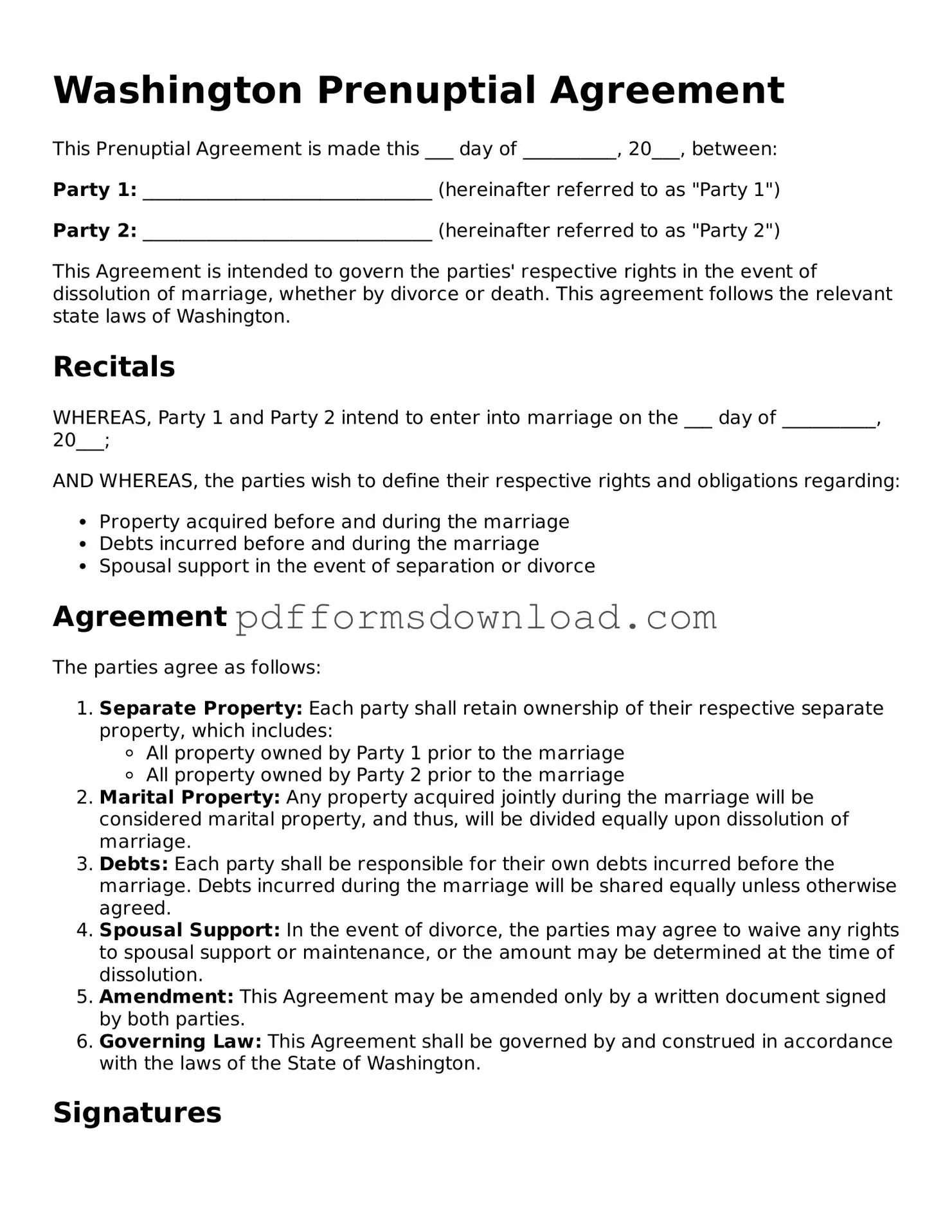What is a prenuptial agreement in Washington?
A prenuptial agreement, often called a prenup, is a legal contract created by two individuals before they get married. This agreement outlines how assets and debts will be handled in the event of divorce or separation. It can also address issues such as spousal support and property division. In Washington, prenups must be in writing and signed by both parties to be enforceable.
Who should consider a prenuptial agreement?
Anyone getting married may want to consider a prenuptial agreement. This is especially true for individuals with significant assets, business interests, or children from previous relationships. A prenup can help clarify financial responsibilities and protect individual interests, making it easier to navigate potential future disputes.
What can be included in a Washington prenuptial agreement?
A prenuptial agreement can cover various topics, including the division of property, debt responsibility, and spousal support. It can also specify how to handle future income, inheritances, and gifts. However, certain matters, like child custody and child support, cannot be predetermined in a prenup, as they are subject to court approval based on the child's best interests.
How do I create a prenuptial agreement?
To create a prenuptial agreement in Washington, both parties should first discuss their financial situations and expectations. It’s wise to consult with separate attorneys to ensure that each person's interests are protected. After drafting the agreement, both parties must sign it in front of a notary public. This helps ensure that the document is legally binding.
Can a prenuptial agreement be changed after marriage?
Yes, a prenuptial agreement can be modified after marriage. Both parties must agree to any changes, and it’s best to document these changes in writing. Like the original agreement, any modifications should be signed and notarized to ensure they are enforceable.
Is a prenuptial agreement enforceable in Washington?
In general, prenuptial agreements are enforceable in Washington as long as they meet specific legal requirements. These include being in writing, signed by both parties, and entered into voluntarily without coercion. If either party can prove that the agreement was unfair or that full financial disclosure was not provided, a court may choose not to enforce it.
What happens if we don’t have a prenuptial agreement?
If a couple does not have a prenuptial agreement and later divorces, Washington's community property laws will govern the division of assets and debts. This means that any property acquired during the marriage is generally considered joint property, while property owned before marriage remains separate. Without a prenup, the division may not align with either party’s wishes, leading to potential disputes.

